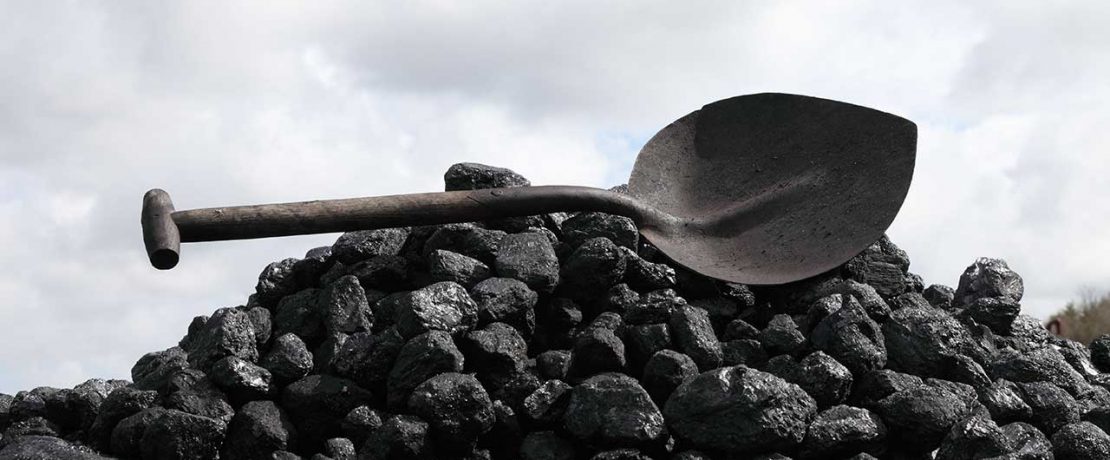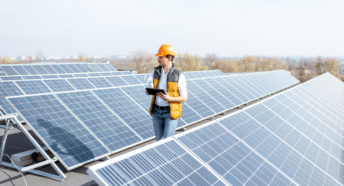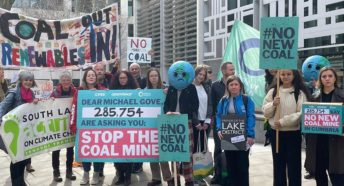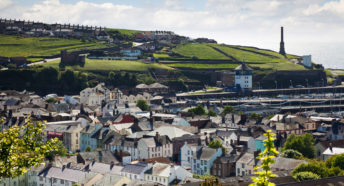Our letter to the Secretary of State: refuse the Cumbria coal mine
On the eve of global climate summit COP27, CPRE has joined forces with 25 national and local environmental organisations to urge the Levelling up Secretary Michael Gove to refuse the proposed deep coal mine in Whitehaven, Cumbria. Here’s the full text of our letter.
Rt Hon Michael Gove MP
Secretary of State for Levelling Up, Housing and Communities
Department for Levelling Up, Housing and Communities
2 Marsham Street
London
SW1P 4DF
4 November 2022
Dear Secretary of State,
We are writing as senior representatives within 25 organisations, on the eve of COP27, to urge you to refuse permission for the proposed Whitehaven coal mine.
Delaying the decision, for the third time this year, on whether to approve the first new deep coal mine in the UK for 30 years sends a deeply worrying signal. It is surely a missed opportunity for the Prime Minister not to have been able to announce in front of other world leaders, at COP27, that this country was ready to double down on its pledges in Glasgow to consign coal to history.
In your former role as Environment Secretary, you led the charge in introducing a landmark new Environment Act, establishing a new environmentally-friendly farm payments scheme post-Brexit, and signalling the government’s intent to tackle single-use plastic with a Deposit Return Scheme. We urge you, in your newly appointed position, to make the right decision by current and future generations of this planet we steward by respecting the commitments of your government’s electoral mandate to reach net-zero emissions by 2050 and rejecting the Whitehaven coal mine.
As stated by the Chair of the Climate Change Committee in June this year, approving a new coal mine in West Cumbria in light of the government’s net zero commitments would be ‘absolutely indefensible’. The arguments for any carbon savings from the proposed Whitehaven coal mine have been thoroughly debunked; the truth is that it would simply add more emissions to a heating planet – more emissions than all of the currently open UK coal mines combined. This is on top of warnings from the International Energy Agency that in order to reach net zero by 2050, no new coal, oil and gas fields can be opened.
After record-breaking summer heatwaves and nationwide drought, the UK needs to send a message to the world that it is committed to tackling the climate emergency. Approving a new coal mine would be the antithesis of this, and risks permanently damaging our reputation on the global stage.
Not only would the Whitehaven coal mine be a disaster for the climate, but it would also actively damage the levelling up agenda, another core pillar of the Conservative manifesto. West Cumbria Mining have so far only produced empty claims without evidence about a small number of jobs that could be created from the mine; but even if any of these jobs were to materialise, they would exist for a stranded asset in an industry set to be made redundant by climate change legislation. This would leave any employees with temporary work at best, and would strand young people in an industry in rapid decline.
By contrast, Cumbria has the potential for 6000 green jobs by 2030 according to the Local Government Association, with almost 600 of those available in Copeland, where the mine would be built. Opinion polling for Green Alliance last year has shown that people – including 2019 Conservative voters and people in the North of England – want the government to focus on investment in these new low carbon industries, rather than in existing or new carbon-emitting industries. In order to level up the country, your government has the power to invest in energy efficiency, low-carbon heating, and renewables that will provide skilled, well-paid jobs for industries of the future, rather than those of the past.
Finally, approving the Whitehaven coal mine would send a damaging signal to the steel sector across the UK and Europe, which is already making admirable moves towards low-carbon steelmaking. Steel makers are looking to make the transition to lower-carbon methods of production in order to ensure that their business will remain viable within legislated climate targets, because they are aware that prices on carbon emissions are very likely to rise significantly over the coming decades, and because they see an emerging market for ‘green steel’ and the opportunity to establish market share globally selling it.
Unnecessarily creating a new supply of coking coal risks creating a disincentive to these important moves that are critical for steel industry survival in a net-zero future.
Key UN reports published in the last week have issued a stark warning that we are close to ‘irreversible’ climate breakdown. The eyes of the world are watching – now is the time to show you are on their side.
Yours sincerely,
Nick Bryer, Campaigns Director (Europe), 350.org
Megan Bentall, Head of Campaigns, 38 Degrees
Dr Rose O’Neill, CEO, Campaign for National Parks
Laura Clarke, CEO, Client Earth
Sam Ward, Manager, Climate Cymru
Isaac Beevor, Co-director, Climate Emergency UK
Daniel Therkeson, Director, Coal Action Network
Tom Fyans, Interim CEO, CPRE The countryside charity
Stephen Trotter, CEO, Cumbria Wildlife Trust
Stuart Clayton, Acting CEO, Friends of the Lake District
Helena Bennett, Head of Climate Policy, Green Alliance
Areeba Hamid, Co-executive Director, Greenpeace UK
David Cowdrey, External Affairs Director, MCS Charitable Foundation
Alfie Stirling, Director of Research and Chief Economist, New Economics Foundation
Charlotte Howell-Jones, Lead Fossil Fuels Organiser, Parents for Future UK
Leo Murray, Co-director, Possible
Naomi Luhde-Thompson, Director, Rights: Community: Action
Shaun Thomas, Chief Operating Officer, RSPB
Joan Edwards, Director of Policy, The Wildlife Trusts
Hugh Ellis, Director of Policy, Town and Country Planning Association
George Carew-Jones, Press Officer, UK Youth Climate Coalition
Tessa Khan, Executive Director & Founder, Uplift
Richard Benwell, CEO, Wildlife and Countryside Link
Abi Bunker, Director of Conservation and External Affairs, Woodland Trust
Angela Francis, Director of Policy Solutions, WWF







